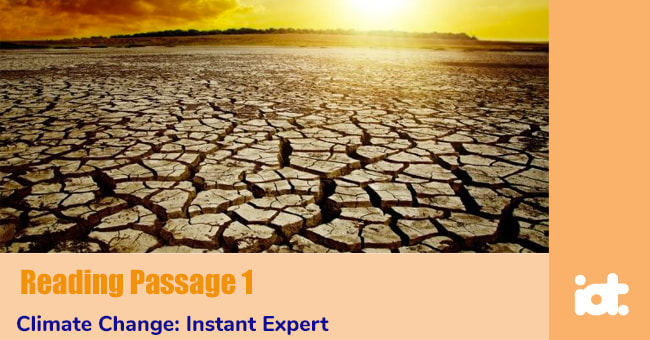
IELTS Practice Test Volume 5
- Đăng ngày: 05 Jul 2019
- Tests taken: 122,420
Đáp án
Part 1: Question 1 - 13
- 1 D
- 2 A
- 3 B
- 4 G
- 5 water resources
- 6 global warming
- 7 developing
- 8 iron
- 9 TRUE
- 10 TRUE
- 11 FALSE
- 12 NOT GIVEN
- 13 NOT GIVEN
- 1 D
- 2 A
- 3 B
- 4 G
- 5 water resources
- 6 global warming
- 7 developing
- 8 iron
- 9 TRUE
- 10 TRUE
- 11 FALSE
- 12 NOT GIVEN
- 13 NOT GIVEN
Part 2: Question 14 - 26
- 14 H
- 15 C
- 16 D
- 17 E
- 18 22 A,D,E,G,H
- 23 A
- 24 C
- 25 B
- 26 A
- 14 H
- 15 C
- 16 D
- 17 E
- 18 22 A,D,E,G,H
- 23 A
- 24 C
- 25 B
- 26 A
Part 3: Question 27 - 40
- 27 B
- 28 C
- 29 C
- 30 B
- 31 outsourcing hub
- 32 domestic
- 33 tax-dodging
- 34 concentrated
- 35 foreign direct investment
- 36 FALSE
- 37 NOT GIVEN
- 38 TRUE
- 39 TRUE
- 40 FALSE
- 27 B
- 28 C
- 29 C
- 30 B
- 31 outsourcing hub
- 32 domestic
- 33 tax-dodging
- 34 concentrated
- 35 foreign direct investment
- 36 FALSE
- 37 NOT GIVEN
- 38 TRUE
- 39 TRUE
- 40 FALSE
Leaderboard:
| # | Thành viên | Điểm | Thời gian | |
|---|---|---|---|---|
| saif ul islam |  | 9.0 | 15:58 | |
| Khangarid J |  | 9.0 | 16:58 | |
| THAO NGUYEN THI NGOC |  | 9.0 | 17:00 | |
| 4 | Nguyen Minh Tu |  | 9.0 | 17:13 |
| 5 | Võ Phương |  | 9.0 | 17:34 |
| 6 | Nguyễn Thanh Hiền |  | 9.0 | 18:45 |
| 7 | Nguyễn Hải Hà |  | 9.0 | 18:51 |
| 8 | Nguyen Ngoc Diep |  | 9.0 | 20:09 |
| 9 | Nguyễn Minh Tiến |  | 9.0 | 20:13 |
| 10 | Ruslan Rodionov |  | 9.0 | 20:33 |
Giải thích chi tiết
Questions 1-4
The text has 7 paragraphs (A-G).
Which paragraph contains each of the following pieces of information?
1 The effects of global warming on animals.
2 The ways in which ordinary people can see the global climate is changing.
3 The science behind global warming.
4 Possible solutions to global warming.
- 1 Answer: D
Keywords in Questions
Similar words in Passage
From Q1 to Q4, we use a technique called scanning. As the question is finding which paragraph contains pieces of information, we will scan the whole passage, looking for the keywords to find the location of the needed information.
For example, in Q1, we need to search for the paragraph mentioning the effects of global warming on animals. Only paragraph D mentions the biodiversity and species. We find the word “species” in paragraph D, line 2.Therefore the answer is D
Q1: The effects of global warming on animals.
Most species cannot migrate fast enough to keep up, though others are already evolving in response to warming.
Note:
Here we must find paragraph mentioning the effects of global warming on animals.
The word “species” which means different kinds of animals is mentioned in paragraph D, line 2. The word “animals” does not appear in other paragraphs.
Therefore, the answer is D.
- 2 Answer: A
Keywords in Questions
Q2: The ways in which ordinary people can see the global climate is changing.
Climate change is with us. A decade ago, it was conjecture. Now the future is unfolding before our eyes. Canada's Inuit see it in disappearing Arctic ice and permafrost. The shantytown dwellers of Latin America and Southern Asia see it in lethal storms and floods. Europeans see it in disappearing glaciers, forest fires and fatal heat waves. Scientists see it in tree rings, ancient coral and bubbles trapped in ice cores.
Note:
We must find paragraph mentioning the ways in which ordinary people can see the global climate is changing.
The word “climate change” is mentioned in the 1st line of paragraph A. The word “see” is mentioned many times in the next lines of paragraph A.
Therefore, the answer here is A.
- 3 Answer: B
Keywords in Questions
Similar words in Passage
Q3: The science behind global warming
This releases billions of tonnes of carbon dioxide (CO2) every year, although the changes may actually have started with the dawn of agriculture, say some scientists.
Note
We must find paragraph mentioning The science behind global warming.
The keyword “scientists” is mentioned in the 5th line of paragraph B. Scientists are persons who do science. And global warming is explained in the 3rd sentence of paragraph B.
Therefore, the answer here is B.
- 4 Answer: G
Keywords in Questions
Similar words in Passage
Q4: Possible solutions to global warming.
Other less conventional solutions include ideas to stave off warming by "mega-engineering" the planet with giant mirrors to deflect the Sun's rays, seeding the oceans with iron to generate algal blooms, or burying greenhouse gases below the sea.
Note
We must find paragraph mentioning possible solutions to global warming.
The keyword “solutions” is mentioned in the 5th line of paragraph G. The word “solutions” does not appear in other paragraphs.
Therefore, the answer here is G.
Questions 5-8
Complete the following sentences using NO MORE THAN THREE WORDS from the text.
Wars could be fought over reduced 5 .
Certain pollutants actually protect us from 6 .
7 countries were not required to make cuts in emissions under the Kyoto Protocol.
Algal blooms feed on 8 .
- 5 Answer: water resources
Keywords in Questions
Similar words in Passage
From Q5 to Q8, we also use a technique called scanning. As the question is using words from the text to fill in the blank, we must find keywords in the passage and then look for words to fill in the blank
For example, in Q5, we need to search for the keyword “war” in the passage. The word “clashes” and “conflicts” which has similar meaning with “war” appears in paragraph C. The word “dwindling” has similar meaning with “reduced”. It is mentioned that dwindling water resources may cause conflicts in many regions. So the answer here should be “water resources”.
Keywords in Questions
Similar words in Passage
Q5: Wars could be fought over reduced…
Clashes over dwindling water resources may cause conflicts in many regions.
Note:
We need to search for the keyword “war” in the passage.
The word “clashes” and “conflicts” which has similar meaning with “war”, the word “dwindling” which has similar meaning with “reduced” appears in the last line of paragraph C.
It is mentioned that dwindling water resources may cause conflicts in many regions.
So the answer here should be “water resources”.
- 6 Answer: global warming
Keywords in Questions
Similar words in Passage
Q6: Certain pollutants actually protect us from….
The global warming would be more pronounced if it were not for sulphur particles and other pollutants that shade us, and because forests and oceans absorb around half of the CO2 we produce.
Note:
The keyword “pollutants” appears in the 2nd line of paragraph E.
It is mentioned that the global warming would be more pronounced if it were not for pollutants such as sulphur, particles and other pollutants that shade us.
Therefore, the answer here should be global warming.
- 7 Answer: developing
Keywords in Questions
Similar words in Passage
Q7: …..countries were not required to make cuts in emissions under the Kyoto Protocol.
The first step was the 1997 Kyoto Protocol, which came into force during 2005. It will bring modest emission reductions from industrialised countries. Many observers say deeper cuts are needed and developing nations, which have large and growing populations, will one day have to join in.
Note:
Kyoto Protocol is mentioned in 2nd line of paragraph F.
It is mentioned in the 4rd line that developing nations will one day have to join in.
This means developing countries were not required to make cuts in emission.
For that reason, the answer here should be developing.
- 8 Answer: iron
Keywords in Questions
Similar words in Passage
Q8 Algal blooms feed on….
Other less conventional solutions include ideas to stave off warming by "mega-engineering" the planet with giant mirrors to deflect the Sun's rays, seeding the oceans with iron to generate algal blooms, or burying greenhouse gases below the sea.
Note:
The keyword “algal blooms” appears in the 7th line of paragraph G.
It is mentioned that the oceans are seeded with iron to generate algal blooms.
Therefore, the answer here should be iron
Questions 9-13
Do the following statements agree with the information given in Reading Passage 1?
| TRUE | if the statement agrees with the information |
| FALSE | if the statement contradicts the information |
| NOT GIVEN | If there is no information on this |
9 Volcanoes can influence the global climate.
10 Billions of people live near the sea.
11 Peat bogs never release CO2.
12 Improving energy efficiency can be done quickly.
13 Burying greenhouse gases under the sea is not possible.
- 9 Answer: TRUE
Keywords in Questions
Similar words in Passage
Q9 Volcanoes can influence the global climate.
And Earth has probably never warmed as fast as in the past 30 years--a period when natural influences on global temperatures, such as solar cycles and volcanoes should have cooled us down.
Note: Considering every details in the question and in the passage, we can conclude
that Q9 is confirmed in the passage.
For that reason, the answer is TRUE
- 10 Answer: TRUE
Keywords in Questions
Similar words in Passage
Q10. Billions of people live near the sea.
This would condemn the world to a rise in sea level of six metres--enough to flood land occupied by billions of people.
Note: Considering every details in the question and in the passage, we can conclude
that Q10 is confirmed in the passage.
For that reason, the answer is TRUE
- 11 Answer: FALSE
Keywords in Questions
Similar words in Passage
Q11. Peat bogs usually release CO2.
Recent research suggests that natural CO2 "sinks", like peat bogs and forests, are actually starting to release CO2.
Note
Question: Peat bogs usually release CO2.
Passage: peat bogs and forests, are actually starting to release CO2.
For that reason, the answer is FALSE
- 12 Answer: NOT GIVEN
Keywords in Questions
Similar words in Passage
Q12. Improving energy efficiency can be done quickly.
In any case, according to the IPCC, the world needs to quickly improve the efficiency of its energy usage and develop renewable non-carbon fuels like: wind, solar, tidal, wave and perhaps nuclear power.
Note
Improving energy efficiency is mentioned only in paragraph G. However, it is not mentioned whether it can be done quickly or not.
So the answer is NOT GIVEN.
- 13 Answer: NOT GIVEN
Keywords in Questions
Similar words in Passage
Q13
Burying greenhouse gases under the sea is not possible.
Other less conventional solutions include ideas to stave off warming by "mega-engineering" the planet with giant mirrors to deflect the Sun's rays, seeding the oceans with iron to generate algal blooms, or burying greenhouse gases below the sea.
Note
Burying greenhouse gases under the sea is mentioned only in paragraph G. However, it is not mentioned whether it is possible or not to do that.
So the answer is NOT GIVEN.
Reading Passage 1
You should spend about 20 minutes on Questions 1-13, which are based on Reading Passage 1.

Climate Change: Instant Expert
A. Climate change is with us. A decade ago, it was conjecture. Now the future is unfolding before our eyes. Canada's Inuit see it in disappearing Arctic ice and permafrost. The shantytown dwellers of Latin America and Southern Asia see it in lethal storms and floods. Europeans see it in disappearing glaciers, forest fires and fatal heat waves. Scientists see it in tree rings, ancient coral and bubbles trapped in ice cores. These reveal that the world has not been as warm as it is now for a millennium or more. The three warmest years on record have all occurred since 1998; 19 of the warmest 20 since 1980. And Earth has probably never warmed as fast as in the past 30 years--a period when natural influences on global temperatures, such as solar cycles and volcanoes should have cooled us down.
B. Climatologists reporting for the UN Intergovernmental Panel on Climate Change (IPCC) say we are seeing global warming caused by human activities. People are causing the change by burning nature's vast stores of coal, oil and natural gas. This releases billions of tonnes of carbon dioxide (CO2) every year, although the changes may actually have started with the dawn of agriculture, say some scientists. The physics of the "greenhouse effect" has been a matter of scientific fact for a century. CO2 is a greenhouse gas that traps the Sun's radiation within the troposphere, the lower atmosphere. It has accumulated along with other manmade greenhouse gases, such as methane and chlorofluorocarbons (CFCs). Some studies suggest that cosmic rays may also be involved in warming.
C. If current trends continue, we will raise atmospheric CO2concentrations to double pre-industrial levels during this century. That will probably be enough to raise global temperatures by around 2℃ to 5℃. Some warming is certain, but the degree will be determined by cycles involving melting ice, the oceans, water vapour, clouds and changes to vegetation. Warming is bringing other unpredictable changes. Melting glaciers and precipitation are causing some rivers to overflow, while evaporation is emptying others. Diseases are spreading. Some crops grow faster while others see yields slashed by disease and drought. Clashes over dwindling water resources may cause conflicts in many regions.
D. As natural ecosystems - such as coral reefs - are disrupted, biodiversity is reduced. Most species cannot migrate fast enough to keep up, though others are already evolving in response to warming. Thermal expansion of the oceans, combined with melting ice on land, is also raising sea levels. In this century, human activity could trigger an irreversible melting of the Greenland ice sheet. This would condemn the world to a rise in sea level of six metres - enough to flood land occupied by billions of people.
E. The global warming would be more pronounced if it were not for sulphur particles and other pollutants that shade us, and because forests and oceans absorb around half of the CO2 we produce. But the accumulation rate of atmospheric CO2 has doubled since 2001, suggesting that nature's ability to absorb the gas could now be stretched to the limit. Recent research suggests that natural CO2 "sinks", like peat bogs and forests, are actually starting to release CO2.
F. At the Earth Summit in 1992, the world agreed to prevent "dangerous" climate change. The first step was the 1997 Kyoto Protocol, which came into force during 2005. It will bring modest emission reductions from industrialised countries. Many observers say deeper cuts are needed and developing nations, which have large and growing populations, will one day have to join in. Some, including the US Bush administration, say the scientific uncertainty over the pace of climate change is grounds for delaying action. The US and Australia have reneged on Kyoto. Most scientists believe we are under-estimating the dangers.
G. In any case, according to the IPCC, the world needs to quickly improve the efficiency of its energy usage and develop renewable non-carbon fuels like: wind, solar, tidal, wave and perhaps nuclear power. It also means developing new methods of converting this clean energy into motive power, like hydrogen fuel cells for cars. Other less conventional solutions include ideas to stave off warming by "mega-engineering" the planet with giant mirrors to deflect the Sun's rays, seeding the oceans with iron to generate algal blooms, or burying greenhouse gases below the sea. The bottom line is that we will need to cut CO2 emissions by 70% to 80% simply to stabilise atmospheric CO2 concentrations--and thus temperatures. The quicker we do that, the less unbearably hot our future world will be.






